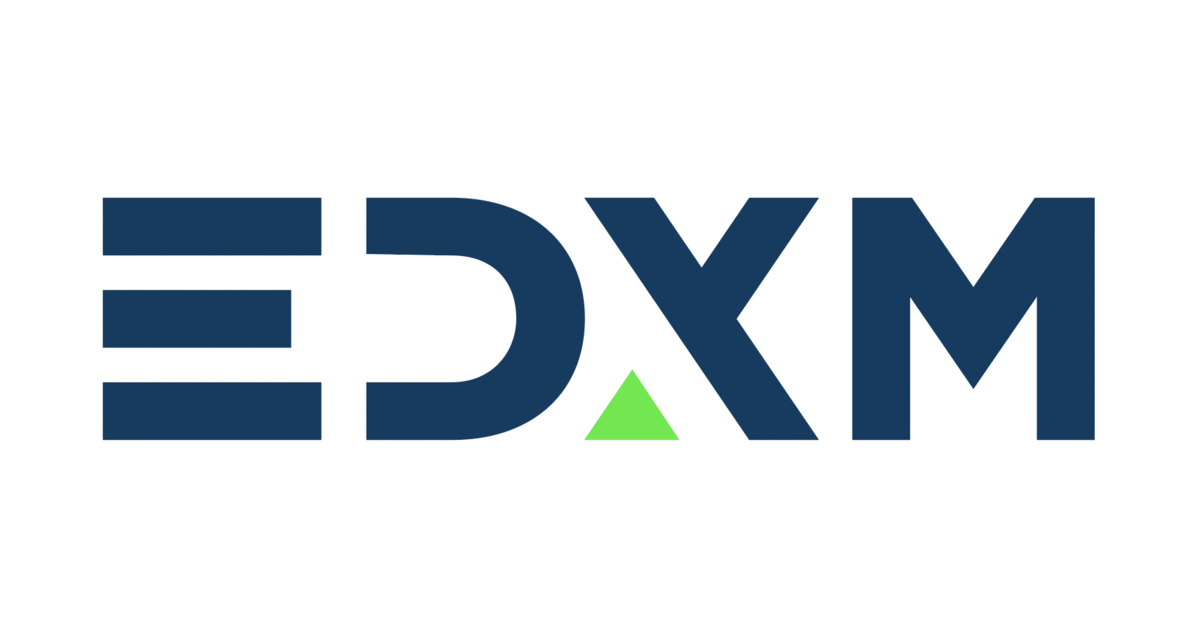Why is Bakkt started repeatedly? CFTC Chairman Giancarlo talks about the reasons for his resistance
When is Bakkt launched?
Since the first time the Intercontinental Exchange (ICE), the parent company of the New York Stock Exchange, disclosed its grand plan to build a bitcoin futures platform last summer, the issue has been repeatedly raised. Bakkt will help bring Bitcoin to the next level of mass adoption, but it has now postponed the launch date twice, including indefinitely postponing the start date at the end of 2018.

Image source: visualhunt
- Bitcoin broke through $5,500 because the largest brokerage in the US is testing BTC transactions?
- Bibox and IEO starting project SKR "reverse" behind: 10 million guarantees?
- Is the USDT a sword of Damocles hanging over the coin?
As we all know, the delay of Bakkt is essentially from the regulatory level, not technical. But the specific reasons for the delay are unclear. News reports from the cryptocurrency legal community and anonymous sources are basically rumors and speculations.
But one thing is clear: before the official launch, Bakkt needed final approval from the US Commodity Futures Trading Commission (CFTC). Kakly Loeffler, chief executive officer of Bakkt, said in the blog post that the exchange is communicating with regulators, but he has hardly provided any other details. Bakkt also declined to discuss any of the discussions on this article.
As far as the CFTC is concerned, it remains silent on Bakkt, so it is difficult to judge what attitude the institution is in the process.
However, CoinDesk recently conducted an interview with CFTC Chairman J. Christopher Giancarlo. Giancarlo became a hero in the field of encryption after he proposed to Congress a "no-damage" approach to the field of encryption in early 2018.
Although Giancarlo is reluctant to discuss any specific proposals or companies under review, he talks very broadly about the regulatory issues facing new encryption products and offers his own insights into how the 45-year-old organization handles futures issues.
If you read it carefully, you can see some of the obstacles Barkt encountered in his comments.
US Commodity Exchange Act
Giancarlo's encrypted community is aptly called "encrypted good daddy". When describing the overall framework of US derivatives regulation, he completely used the tone of the encryption community. He cited the 1936 Commodity Exchange Act:
"In the field of encryption, everything is based on a specific agreement. The law is also an agreement. We are working on a very old agreement. In our case, it has been more than 80 years old. The law is huge, there are countless Thousand pages of terms, and very detailed."
Giancarlo explained that the agreement also includes state and federal law predecessors, which began to form as early as the 1860s. Under the agreement, the state and federal governments have disagreed on the regulation of derivatives. Giancarlo continues to say:
“The agreement reached is that the federal government will supervise exchanges, derivatives products, certain intermediaries and clearing houses, but actually has the right to trust in financial instruments such as cash, usually in accordance with state law or national charter, by bank or The form of the trust is regulated."
These custodians also include commodity warehouses supervised by state agencies or the US Department of Agriculture, which hold the underlying assets and deliver them to customers when the futures contract expires. Giancarlo said:
“Even if we have a clearing house regulated by the CFTC, the clearing house will use state-regulated custodians or state-licensed banks supervised by the Monetary Authority to actually hold funds and securities. That is, the company can choose Store your assets in the clearing house."
Today, Giancarlo continues to say that one of the challenges facing his organization is to assess how futures exchanges store cryptocurrencies. This happens when the contract is actually settled, that is, when the buyer delivers the actual goods when the contract expires.
Although the Bitcoin futures launched by the CME Group and the CBOE in 2017 are settled in cash, equivalent to a unilateral bet on the dollar price of this cryptocurrency, but Bakkt and the start-up ErisX, Seed CX and LedgerX are all looking to launch in physical bitcoin
“Our regulations allow us to monitor new physical cryptocurrencies, but it considers using regulated trusts or banks to host client funds unless they choose to deposit assets in the clearing house.”
From this point of view, why the CFTC did not approve Bakkt began to have a little bit of eyebrows.
According to past statements of the exchange, it originally planned to host Bitcoin through its own digital "insurance". Since the Intercontinental Exchange is not a bank or a state-regulated custodian, this requires exempting the rules described by Giancarlo.
However, Bloomberg reported on Thursday that Bakkt is currently applying for a license to the State of New York, most likely applying for a trust company to handle custody related matters. Even so, there is another problem.
The result is not clear
To be more specific, the clearing house's derivatives market acts as a middleman between buyers and sellers, ensuring that both parties maintain their respective trading purposes. As Ben Bernanke, former chairman of the Federal Reserve, explained in a speech in 2011, they also helped to reduce the cost and risk of such transactions.
But the risks are not completely eliminated, but are shared by the member companies of the clearing house. Therefore, if a clearing house holds bitcoin (in the sense of buying and selling, it is not necessary to keep the private key), its members will be exposed to the risk of rapid price fluctuations in bitcoin. Giancarlo continues to say:
“One of the potential challenges for Bitcoin futures is that participants in other asset classes in the clearing house do not always want to share the risk of interest rates or commodity futures with other people holding cryptocurrencies.”
In fact, many companies are not excited about CME and Cboe launching bitcoin futures contracts at the end of 2017. The Futures Industry Association even wrote an open letter criticizing the CFTC for allowing it to do so. The letter mentioned that the high volatility of Bitcoin at the time was the main reason for their concern.
According to information shared by Bakkt to date, the company plans to use its parent company's regulated clearing house, ICE Clear US, as an intermediary to liquidate the one-day Bitcoin futures contract.
So, no matter how Bakkt hosts Bitcoin, it needs to send these assets to buyers through ICE Clear US, which raises the question: How will clearing members handle these assets?
CoinDesk contacted some members of ICE Clear US. Most companies did not respond, and several companies declined to comment.
However, Bob Fitzsimmons, executive vice president of fixed income, currency and commodities at Wedbush Securities, an employee of ICE Clear US, said he was not worried about ICE's storage of Bitcoin, but he did not talk about the price considerations of Bitcoin. He said:
"Our understanding in this process is that we don't deal with any cash bitcoin, spot bitcoin or spot digital currency, so we don't have to hold or process these currencies, which is one of the things that people are afraid of. From the perspective of futures, we are very satisfied."
That is to say, as Fitzsimons pointed out, Wedbush may be an outsider on this point of view. Wedbush has been working on the encryption field for a long time, released the Bitcoin research report in 2013, and provided support at the beginning of the Coinbase exchange.
Bakkt is not alone
As Bakkt is under regulatory uncertainty, it may not be the first company in the US to offer physical settlement of bitcoin futures.
LedgerX was founded in 2014 and was approved by the CFTC in 2017 to provide bitcoin derivatives. In the past two years, LedgerX has offered swaps and options to US customers, and now plans to offer its own physical settlement futures contracts in the coming weeks.
Juthica Chou, the company's chief operating officer, told CoinDesk that LedgerX had applied for the Swap Execution Facilityk (SEF) and the Derivatives Clearing Organization (DCO) since its inception. Like Bakkt, it took some time to get regulatory approval.
In 2015, the company's application entered an extended public comment period and was finally approved two years later. Chou explained that until then, Ledgerx was able to prove the physical settlement options and swap contract products on its own.
Under the terms of the CFTC, companies can prove that the upcoming product meets legal and regulatory requirements, rather than requiring the agency to approve a new product. The CFTC staff only reviews the product to ensure it complies with the appropriate regulations. If the product does violate any regulations or rules, the CFTC may suspend the product. Otherwise, CFTC will allow the product to continue to go on the market.
I want to use my own safe to keep Bitcoin, so it doesn't follow this self-certification process.
Chou pointed out that LedgerX holds its own bitcoin on behalf of the customer because the company has a DCO license. In other words, it runs its own clearing house, so it can trade directly with the buyer, not through the intermediary (as Bakkt does with ICE Clear). This, in turn, means that it can handle hosting issues on its own. Chou said:
“LedgerX deals directly with our participants, and we don’t have an intermediary. Ironically, the elimination of intermediaries is the safest model. Too many established Wall Street companies are used to dealing only with intermediaries.”
Despite all the setbacks, Bakkt continues to build its own platform, appointing board members, hiring executives, recruiting developers and managers, making acquisitions, and getting a $20 million to $25 million budget from the parent company. Raised $182.5 million from outside investors.
Nonetheless, whether and when Bakkt will be launched will depend on the CFTC's work process and whether it meets the specific requirements. As Giancarlo said:
“In a certain agreement, there is often a good detail that determines all the differences.”
We will continue to update Blocking; if you have any questions or suggestions, please contact us!
Was this article helpful?
93 out of 132 found this helpful
Related articles
- Gartner's latest forecast: blockchain becomes the main trend of changing supply chain in 2019
- 21 people were arrested and 9 people were arrested in the "hero chain" fraud case.
- Twitter Featured: Nasdaq Testing Bitcoin Transactions; Amazon Supports Lightning Network Payments
- Will decentralized exchanges become a hotbed for manipulating the cryptocurrency market?
- Blockchain weekly report Bitcoin weekly active address +8.17%, BNB affected by the impact of the surge 23.65%
- Market Analysis: Under the market differentiation, where do the funds go?
- Encrypted currency with liar's playing cards






